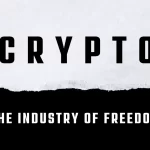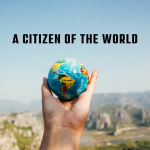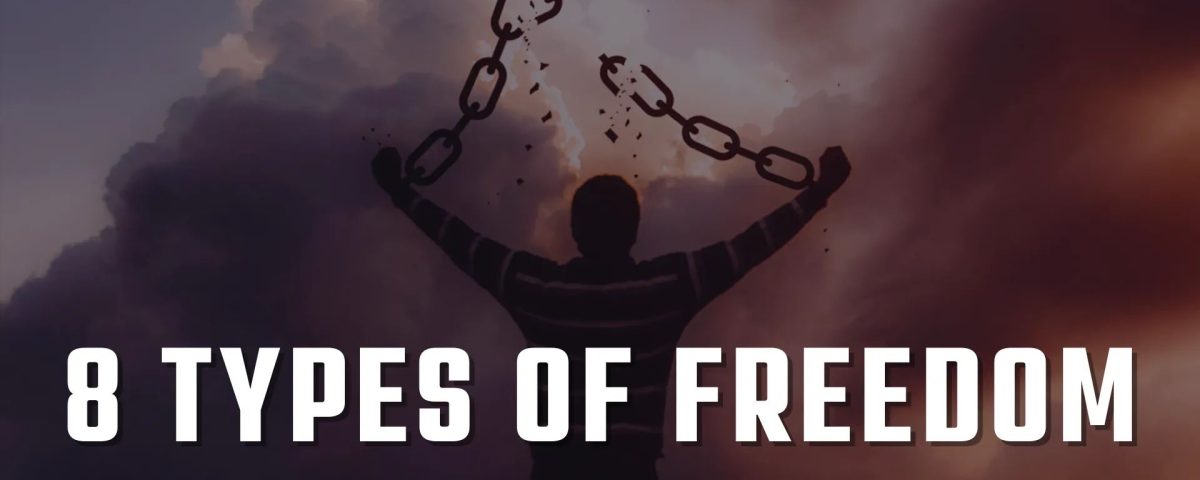
Crypto: The industry of Freedom
October 10, 2023
A Citizen of the World: Visas, Second Passports and Dual Citizenship
October 11, 2023by Regy Andrade
When speaking of freedom, the first thing that comes to mind is the political view of the subject, as that is the most visible line in our daily life, but it is important to understand that freedom goes far beyond that.
Freedom is multidimensional and each dimension has its importance for a full and truly free life. These are the different dimensions: Physical, Mental, Emotional, Time, Geographic, Cultural, Spiritual and Economic.
1. Physical Freedom
Your own body is your most important property. Physical freedom in the context of personal sovereignty is the belief that a sovereign individual has the right to live their life and make decisions about their body without interference from any outside authority, including governments and corporations. This includes the right to choose what type of food and medicine to consume, the right to determine how and where to work, what type of relationship to have and how to manage their finances.
In other words, a sovereign individual has the fundamental right to exist and act in whatever way they choose, as long as they are not violating the rights of anyone else.
2. Mental Freedom
Individuals should have total control over their own thoughts, emotions and actions. Mental freedom means having the ability to choose from a variety of options to make decisions that will lead to personal growth, success and fulfillment.
Being aware of and “practicing” mental freedom can lead to greater inner peace, higher self-esteem and the ability to create a life aligned with each individual’s true purpose.
This approach gives individuals the power to take responsibility for their own lives and the ability to create their own destiny.
3. Emotional Freedom
Emotional freedom is the belief that an individual has the right to make decisions about their emotions, thoughts and behaviors, without the influence of anyone else. It is about taking ownership of one’s own emotional life and recognizing the power to choose how to respond to any situation, environment, or person.
This concept is often referred to as freedom from external control, or self-sovereignty. It is based on the notion that individuals are responsible for their own emotional and mental health and that they can make choices that are more beneficial for themselves.
It is a form of self-empowerment and emphasizes the concept of taking full responsibility for one’s own emotions and mental state.
4. Freedom of Time
Time is the most valuable asset in the world. We spend the majority of our lives trying to buy back our time on earth; many people spend their lives exchanging their time for money — and this regardless of their social or professional level.
For example: There are many entrepreneurs focused only on accumulating capital, they invest all their time, health and energy in it and do not organize to enjoy their goods having quality time to rest and enjoy with their family. Or, professionals like Doctors, some even earning millions per year offering their knowledge and their time, but who also do not plan for the day when they can no longer work for some reason, or to retire and live with the same lifestyle as they have today.
5. Geographic Freedom
Geographic freedom is the idea of being able to live where you want, being able to travel freely and without restrictions. It is a fundamental human right, as stated in the Universal Declaration of Human Rights, which states that “everyone has the right to freedom of movement and residence within the borders of each state”. It can also offer economic and social opportunities not available in one’s current location.
Ultimately, geographic freedom is about being able to choose where you live and how you live, without being limited by external forces.
6. Cultural Freedom
Cultural freedom is the right to practice your own culture in the way that you choose. This includes the freedom to express yourself in the language, clothing, arts, and customs of your culture, as well as the freedom to choose the religion of your preference.
Cultural freedom is important to ensure that individuals have the right to identify as part of a given culture and to honor the traditions and customs of that culture. It is also important because it allows individuals to celebrate their cultural identities, practice their beliefs and share the collective history of their communities and their own identity.
7. Spiritual Freedom
Spiritual freedom can be understood as having personal sovereignty over one’s own spiritual beliefs and practices. It means having an autonomous internal knowledge and connection to one’s own spiritual truth, rather than being dependent upon or obligated to an external religious authority.
Spiritual freedom is rooted in the belief that each individual has the right to freely explore and practice what resonates with them in their spiritual journey.
It involves the power to make decisions about belief systems, practices, and rituals without external interference. It also means being able to listen to and trust one’s own inner guidance without fear or judgment. Finally, spiritual freedom means being released from the need for approval, acceptance, or permission from any other person.
8. Economic Freedom
Individuals have the right to make decisions about their own economic lives without interference from the government or third parties. This means that individuals must be able to freely choose how to spend and how to invest or save their income and assets. It also means that individuals must be able to start their own businesses, buy and sell products and services without external control and use their money as they deem best for themselves and their families.
This allows for a greater degree of personal sovereignty or control over someone’s economic destiny, as individuals are not limited by the restrictions of government policies.
Financial freedom stems from this economic freedom. Financial freedom is having control over one’s own finances and being able to make financial decisions without the burden of debt or dependence on external sources of income. This form of financial independence is usually the final goal pursued by many people to experience the feeling of financial security and personal sovereignty.
Through Financial Freedom, an individual is liberated from the struggle and stress of managing money and can focus on other important aspects of life. It is the state of being in control of one’s financial life and having the freedom to choose the best way to use one’s resources to increase wealth, security, and enjoy life.





